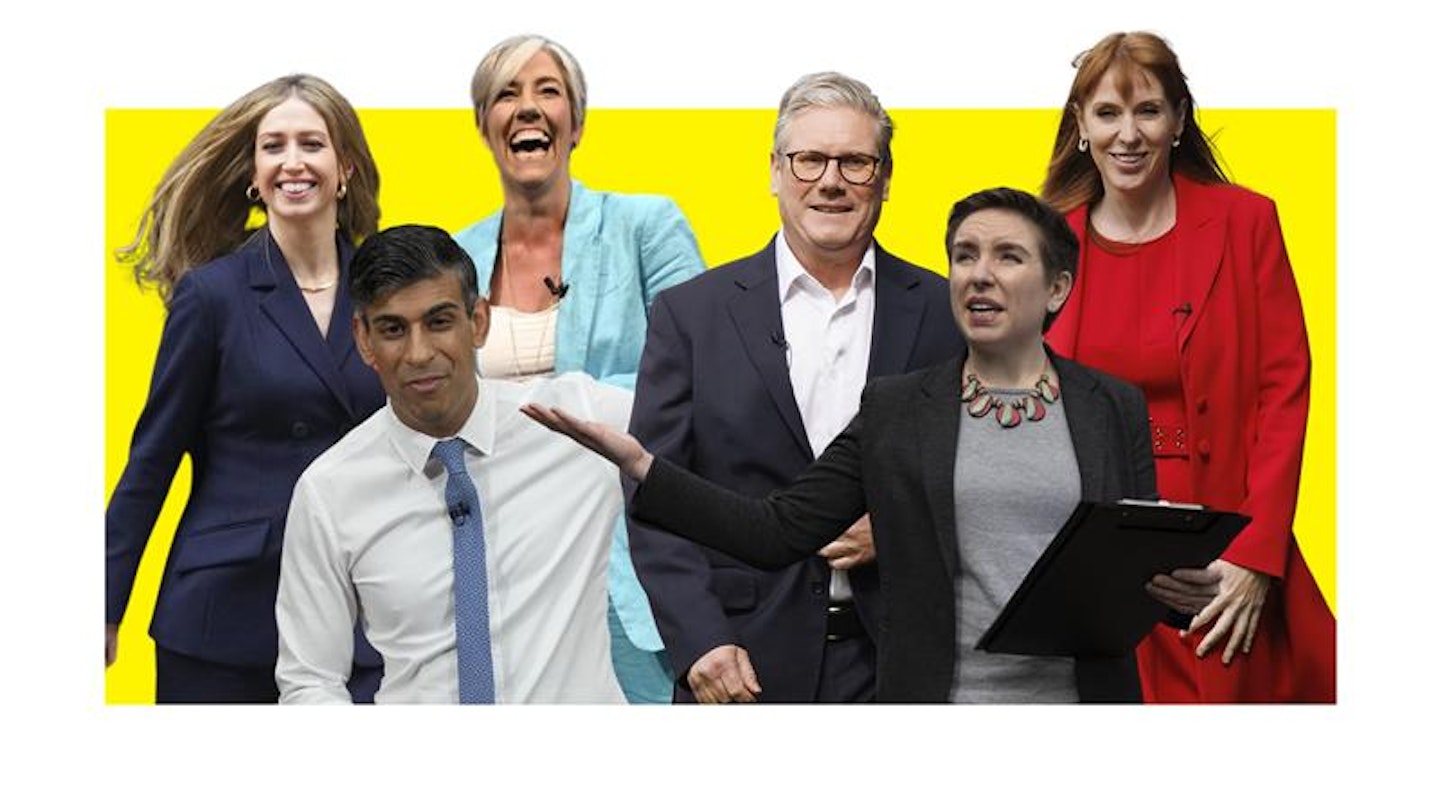It’s only days since Rishi Sunak walked out into a downpour without an umbrella, to call a snap election for 4 July, a move that took even close colleagues by surprise. But already the key issues, personalities and possible pitfalls likely to shape this race to Number 10 are starting to emerge.
All the main parties are chasing women’s votes, knowing we’re traditionally more likely than men to make our minds up relatively close to polling day and therefore theoretically more open to persuasion - though that may be an uphill job with Labour starting off more than 20 points ahead. (According to an eve of campaign poll for YouGov, 18% of women still aren’t sure who they will vote for, compared to only 11% of men).
Though the parties are yet to publish their manifestos, the Tories are expected to highlight their promised 30 free hours of childcare for working parents - though they’ll face questions about whether it’s being properly funded. And don’t be surprised if parental campaigns for a smartphone-free childhood, or concerns about how online porn is affecting young women, also crop up at hustings.
Labour have said they will keep the Tory childcare expansion plan if they win, and they will be stressing pledges to halve violence against women and girls: expect to hear Keir Starmer talking a lot about his pre-Westminster career as Director of Public Prosecutions (when he prioritised bringing more rape cases to trial), while shadow home secretary Yvette Cooper promises crackdowns on domestic violence and sex offenders.
From the Lib Dems, you might be hearing about more generously paid parental leave, sorting out social care - and making rivers and beaches clean enough for wild swimmers, a surprise hot topic during May’s local elections.
Though some feminist trailblazers will be retiring from parliament at this election - including Labour’s Harriet Harman and Margaret Beckett, both of whom served briefly as interim leaders of their party, plus ex-prime minister Theresa May - there will be lots of female faces fronting campaigns. Sunak’s close ally Laura Trott, chief secretary to the Treasury, will be hammering home the Tories’ main message that the economy is supposedly turning around now; LibDem deputy leader Daisy Cooper will likewise be all over the airwaves, while the Green Party’s co-leader Carla Denyer is hoping for a breakthrough thanks to rising fears over climate change and the war on Gaza directing some from Labour to her party
Meanwhile Labour’s deputy leader Angela Rayner could be the breakout star of the so-called election ‘battle bus’ tour carting journalists around the country; she’s also in charge of a package of workplace rights, including a crackdown on sexual harassment and support for menopausal women at work, plus plans for mass housebuilding designed to catch the attention of Generation Rent.
Rishi Sunak will be dangling the prospect of relief for homeowners whose mortgages have shot up, arguing that the Bank of England could soon be able to cut interest rates. But Labour’s focus is more on renters struggling to get on the housing ladder, battling dodgy landlords and the insecurity that comes from constantly worrying about whether you’re going to have to move.
Well, that’s the plan, anyway. But we hadn’t got 24 hours into this campaign before everyone’s plans were coming spectacularly unstuck - from the drumming rain and noisy street protestors playing havoc with Sunak’s big election reveal, to news that former Labour leader Jeremy Corbyn will stand as an independent against the party he once led.
Also more than capable of bringing unplanned drama are the ex-Tory leaders who aren’t quite ex enough for Rishi Sunak. Liz Truss will be standing for her old Norfolk seat, and though he’s not running, can Boris Johnson resist the lure of one last turn in the spotlight?
The thrill of an election, however, is that it’s always the things nobody foresaw in their wildest dreams - from John Prescott punching a voter who threw an egg at him back in 2001, to juicy last minute scandals - that set the campaign on fire.
